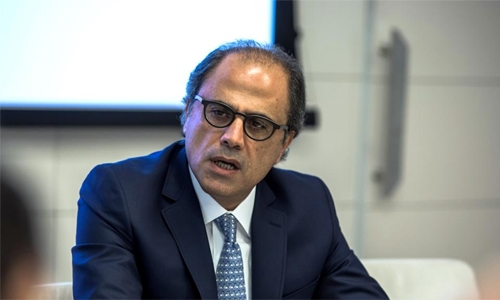Gulf economy will recover in 2018, says IMF’s new report
Economic growth in the energy-rich Gulf will recover in 2018 from a contraction last year but remains vulnerable to volatility in crude oil prices, the IMF said yesterday The global lender predicted that an overall energy price recovery from 2015-2016 lows would spur the economies of the six-nation Gulf Cooperation Council to grow by 2.4 per cent in 2018 and 3.0pc in 2019, after a contraction of 0.4pc last year.
Grouping Bahrain, Kuwait, Oman, Qatar, Saudi Arabia and the United Arab Emirates, the GCC states together pump over 17 million barrels per day and depend heavily on crude revenues. The IMF’s director for the Middle East and Central Asia, Jihad Azour, said the decline in oil prices will not impact the lender’s forecasts because they were based on prices of around $70 a barrel. “It is clear that oil prices are volatile and becoming more so recently,” said Azour, who urged GCC states to consolidate their economic stability.
“If there is one lesson to learn from this it is that countries need to ... use this as an opportunity to increase their (fiscal) buffers, reduce their level of deficit ... and as away to accelerate some of their structural reforms,” Azour said. Azour said that while GCC states have made some progress in economic reforms and the introduction of value-added tax by Saudi Arabia and the UAE, they still need to do more.
Growth in non-GCC oil exporters in the MENA region, which include Iran, Iraq, Algeria and Libya, is projected to slow to 0.3pc in 2018, from three percent the previous year, and pick up to 0.9pc in 2019, the IMF said. “This largely reflects the expected impact of the re-imposition of US sanctions on Iran, which is likely to reduce Iranian oil production and exports significantly over the next two years at least,” the IMF said.
It projected Iran’s economy will shrink by 1.6pc this year and 3.6 percent in 2019. For oil-importing countries in MENA, growth is expected to continue at a pace of 4.5pc in 2018, before dropping back to four percent next year, the IMF said. Oil revenues for MENA exporters have increased by about $260 billion over the period 2016 to 2018.
Related Posts

